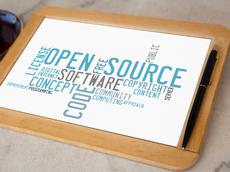Linux Foundation
See the following -
Top 10 FOSS Legal Developments of 2014
 The year 2014 continued the trend of the increasing importance of legal issues for the FOSS community. Continuing the tradition of looking back over the top ten legal developments in FOSS, my selection of the top ten issues for 2014 is as follows...
The year 2014 continued the trend of the increasing importance of legal issues for the FOSS community. Continuing the tradition of looking back over the top ten legal developments in FOSS, my selection of the top ten issues for 2014 is as follows...
- Login to post comments
Top 10 FOSS Legal Stories in 2016
 The year 2016 resulted in several important developments that affect the FOSS ecosystem. While they are not strictly "legal developments" they are important for the community. For one, Eben Moglen, the general counsel of the Free Software Foundation, stepped down. Eben has been a leader on FOSS legal issues since the late 1990s and has been critical to the success of the FOSS movement. The FOSS community owes him a huge debt of gratitude, and I expect that he will continue to be active in the FOSS community. The success of FOSS adoption was dramatically illustrated when Microsoft joined the Linux Foundation and summarized in the article, Open Source Won. So, Now What? in Wired magazine...
The year 2016 resulted in several important developments that affect the FOSS ecosystem. While they are not strictly "legal developments" they are important for the community. For one, Eben Moglen, the general counsel of the Free Software Foundation, stepped down. Eben has been a leader on FOSS legal issues since the late 1990s and has been critical to the success of the FOSS movement. The FOSS community owes him a huge debt of gratitude, and I expect that he will continue to be active in the FOSS community. The success of FOSS adoption was dramatically illustrated when Microsoft joined the Linux Foundation and summarized in the article, Open Source Won. So, Now What? in Wired magazine...
- Login to post comments
Top 10 Linux News Stories of 2016
 They grow up so quickly. It's hard to believe that 25 years ago Linus Torvalds announced to the comp.os.minix Usenet group that he was "doing a (free) operating system (just a hobby, won't be big and professional like gnu) for 386(486) AT clones." Since 1991, Linux has grown beyond even Torvalds' dreams. It's not a stretch to say that Linux is everywhere. Corporations large and small use Linux, and it powers computers, mobile devices, and connected hardware. Critical infrastructure relies on the stability and flexibility of Linux...
They grow up so quickly. It's hard to believe that 25 years ago Linus Torvalds announced to the comp.os.minix Usenet group that he was "doing a (free) operating system (just a hobby, won't be big and professional like gnu) for 386(486) AT clones." Since 1991, Linux has grown beyond even Torvalds' dreams. It's not a stretch to say that Linux is everywhere. Corporations large and small use Linux, and it powers computers, mobile devices, and connected hardware. Critical infrastructure relies on the stability and flexibility of Linux...
- Login to post comments
Twitter And Linux: The Open Source Marriage Made In Heaven
Twitter has transformed how people around the world communicate, from the mass political uprisings of 2011’s Arab Spring to how we anoint celebrities and cultural decision makers. It does this partly because it is ubiquitous and fast. But how does it manage to send out over 400 million tweets a day? Not surprisingly, the service is powered [by] ... Linux. Read More »
- Login to post comments
Twitter Puts Some Money Behind Linux, Boosting Its Developer Street Cred
The Linux Foundation today announced that it has a new big-name member: Twitter. So the real-time information network has stepped up to become an official, paying sponsor of the organization that oversees Linux...
- Login to post comments
Ubuntu 'Weaponised' to Cure NHS of Its Addiction to Microsoft Windows
A quiet revolution has been rumbling in Leeds, in the north of England. It may not seem revolutionary: a gathering of software developers is scarcely going to get people taking to the barricades in these uncertain times, but the results of this particular meetup could shape access to NHS PCs in the coming years...
- Login to post comments
US Defense Think Tank Calls for DoD to Adopt the Open Source VistA EHR and Avoid Closed and Proprietary EHRs.
 One of the most prestigious U.S. defense think tanks, the Center for a New American Security (CNAS), issued a white paper Thursday calling on the Department of Defense (DoD) to replace their existing dysfunctional “vendor-lock” medical records system with an electronic health records system (EHR) that is "extensible, flexible and easy to safely modify and upgrade as technology improves and interoperability demands evolve." The white paper warns that a "closed and proprietary" commercial EHR - such as the ones offered by Epic, Cerner or Allscripts - will lead to "vendor-lock” and isolation of health data. Read More »
One of the most prestigious U.S. defense think tanks, the Center for a New American Security (CNAS), issued a white paper Thursday calling on the Department of Defense (DoD) to replace their existing dysfunctional “vendor-lock” medical records system with an electronic health records system (EHR) that is "extensible, flexible and easy to safely modify and upgrade as technology improves and interoperability demands evolve." The white paper warns that a "closed and proprietary" commercial EHR - such as the ones offered by Epic, Cerner or Allscripts - will lead to "vendor-lock” and isolation of health data. Read More »
- Login to post comments
Using Open Source in the Enterprise - 13 CIOs Embracing Free and Open Source Software
 Open source enterprise use cases appear to be on the rise, at least anecdotally, with an increasing number of CIOs, IT directors and Chief Technology Officers telling CIO UK about investigating and adopting free and open source alternatives to proprietary software as they seek to gain freedom and flexibility, cut costs, increase agility, improve code quality and avoid vendor lock-in.
Open source enterprise use cases appear to be on the rise, at least anecdotally, with an increasing number of CIOs, IT directors and Chief Technology Officers telling CIO UK about investigating and adopting free and open source alternatives to proprietary software as they seek to gain freedom and flexibility, cut costs, increase agility, improve code quality and avoid vendor lock-in.
- Login to post comments
Verizon Jumps Deeper Into Open Source
First, on March 25th, Verizon joined the Open Invention Network (OIN). The OIN is a patent protection consortium that promotes patent collaboration between its members and it uses its patent portfolio to protect Linux from patents attacks.
- Login to post comments
Welcome Xen As A Linux Foundation Collaborative Project
Today we’d like to welcome Xen as the newest Linux Foundation Collaborative Project. Read More »
- Login to post comments
What Blockchain and Open Source Communities Have in Common
 One of the characteristics of blockchains that gets a lot of attention is how they enable distributed trust. The topic of trust is a surprisingly complicated one. In fact, there's now an entire book devoted to the topic by Kevin Werbach. But here's what it means in a nutshell. Organizations that wish to work together, but do not fully trust one another, can establish a permissioned blockchain and invite business partners to record their transactions on a shared distributed ledger. Permissioned blockchains can trace assets when transactions are added to the blockchain. A permissioned blockchain implies a degree of trust (again, trust is complicated) among members of a consortium, but no single entity controls the storage and validation of transactions.
One of the characteristics of blockchains that gets a lot of attention is how they enable distributed trust. The topic of trust is a surprisingly complicated one. In fact, there's now an entire book devoted to the topic by Kevin Werbach. But here's what it means in a nutshell. Organizations that wish to work together, but do not fully trust one another, can establish a permissioned blockchain and invite business partners to record their transactions on a shared distributed ledger. Permissioned blockchains can trace assets when transactions are added to the blockchain. A permissioned blockchain implies a degree of trust (again, trust is complicated) among members of a consortium, but no single entity controls the storage and validation of transactions.
- Login to post comments
Who Writes Linux? Corporations, More Than Ever
Linux Foundation report shows for-profit companies provide 80-plus percent of kernel patches, with big role for mobile hardware developers Read More »
- Login to post comments
Why Businesses Can’t Ignore The Growing Linux Trend
 It used to be a clear sign of geekiness. People who were into Linux would rave about its benefits and flexibility…as long as you knew how to install your own OS, dig around for the hardware drivers you needed, and be a master of command-line instructions. For a world building technical literacy through more user-friendly front-end systems, Linux was a niche reserved for technology enthusiasts...
It used to be a clear sign of geekiness. People who were into Linux would rave about its benefits and flexibility…as long as you knew how to install your own OS, dig around for the hardware drivers you needed, and be a master of command-line instructions. For a world building technical literacy through more user-friendly front-end systems, Linux was a niche reserved for technology enthusiasts...
- Login to post comments
Why the Founder of Apache Is All-in on Blockchain
 Brian Behlendorf is perhaps best known for being a co-founder of the Apache Project, which became the Apache Software Foundation. Today, he's the executive director of the Hyperledger Foundation, an organization focused on enterprise-grade, open source, distributed ledgers (better known as blockchains). He also says he "put the first ad banner online and have been apologizing ever since." In a recent conversation on my podcast, Behlendorf talks about the goals of the Apache Project, the role of foundations generally, and his hopes for blockchain...
Brian Behlendorf is perhaps best known for being a co-founder of the Apache Project, which became the Apache Software Foundation. Today, he's the executive director of the Hyperledger Foundation, an organization focused on enterprise-grade, open source, distributed ledgers (better known as blockchains). He also says he "put the first ad banner online and have been apologizing ever since." In a recent conversation on my podcast, Behlendorf talks about the goals of the Apache Project, the role of foundations generally, and his hopes for blockchain...
- Login to post comments
Why the Operating System Matters Even More in 2017
 Operating systems don't quite date back to the beginning of computing, but they go back far enough. Mainframe customers wrote the first ones in the late 1950s, with operating systems that we'd more clearly recognize as such today—including OS/360 from IBM and Unix from Bell Labs—following over the next couple of decades. An operating system performs a wide variety of useful functions in a system, but it's helpful to think of those as falling into three general categories. First, the operating system sits on top of a physical system and talks to the hardware. This insulates application software from many hardware implementation details...
Operating systems don't quite date back to the beginning of computing, but they go back far enough. Mainframe customers wrote the first ones in the late 1950s, with operating systems that we'd more clearly recognize as such today—including OS/360 from IBM and Unix from Bell Labs—following over the next couple of decades. An operating system performs a wide variety of useful functions in a system, but it's helpful to think of those as falling into three general categories. First, the operating system sits on top of a physical system and talks to the hardware. This insulates application software from many hardware implementation details...
- Login to post comments